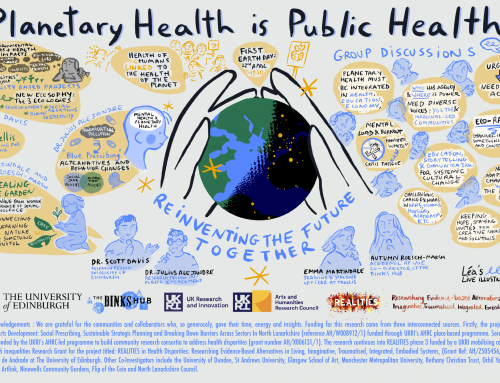Measuring Humanity in Aspiring Communities
Measuring Humanity has been hard at work in Aspiring Communities in partnership with Bethany Christian Trust. This is funded by the Scottish Government’s Aspiring Communities Fund supported by the European Social Fund (ESF). Paul Stevenson, the Community Support and Development Group Head for Bethany Christian Trust, shares his reflections:
In a world where we’re more technologically connected than ever before, many people do not know their neighbours. They do not know the person on the other side of the wall, living only a few feet away. People declare the death of community yet speak little of resolutions to this bleak situation. Cities in particular suffer from being transient places with public spaces disconnected from the people who live there. Moving to cities and across cities is common. Yet, when unforeseen circumstances occur, people are left alone without connections and with no family nearby. Throughout our country there are people isolated and lonely, dealing with their circumstances in whatever way they can.
Over a six month period, Bethany Christian Trust involved more than 650 people in community consultations across four areas of priority need. The ‘Building Stronger Communities Project’ offered a variety of opportunities for residents to share and be listened to. The aim being to find out what was already strong in each area and what things the community longed to see.
It is through stories that history is retold and how we hear the news of today. Likewise, people recall their lives in stories and so listening and responding to these was a major part of what Bethany practitioners did. By prioritising the importance of stories, people and their perceptions took precedence over theories. Bethany’s practitioners took the role of Community Builders, linking local people to existing services and to each other. Local people were encouraged to be Community Connectors, having conversations with their neighbours and sharing their motivation for getting together. Both Builders and Connectors set up conversation cafes and listening events. A creative writing group was initiated in Moredun where people wrote about their experiences of community. Community Builders also had conversations at the food bank in Gorebridge, while mothers in Sighthill came together to share over cups of tea after the morning school run. One participant in Menzieshill said that through the conversation events “you create this way of everyone knowing each other again”.
People are longing for belonging and friendship as well as having spaces to flourish and thrive in. By bridging disconnections between people and their community, those who felt disconnected opened up to increased interactions and participation. One such lady who had been isolated until very recently is now a Community Connector, sharing her gifts with her neighbours.
In every location people from the local community were nurtured and had conversations that revolved around what they could do and less about what they couldn’t. This asset based approach focuses on long term sustainability and greater fulfilment for individuals as they play a part in their local community. The level of participation has demonstrated that there is an appetite within the four communities for people to act with and for each other. People within each neighbourhood have been enabled to do things themselves instead of having things done for and to them by organisations and outsiders.
Action Plans in each area are being written by local people with a united vision to develop their areas. The Community Builders will continue to work with local citizens to support the implementation of these plans. There’s been a great willingness by people to share their time and skills for the greater good of the community through an adult literacy group, gardening groups and community lunches. Such an approach shifts the focus of a community’s identity from what they don’t have or what they have lost, to what they do have and what they have the capacity to do in the future.
By investing in our communities as citizens in whatever way we can, community-led solutions can tackle poverty and inequality. Through the empowerment and mobilisation of individuals, communities can be strengthened, resilience increased and initial instances and reoccurrences of homelessness significantly reduced. Community Builders and Connectors will continue to network and journey together with local people towards recovery, employment and stronger family relationships.
By partnering with the University of Edinburgh’s Measuring Humanity project, this work is making an important contribution to the health policy and inequalities agenda. A person’s value goes way beyond the numerical and so approaches in evidence gathering that document a person’s life experiences carry an enormous amount of weight. Through such innovative approaches, we will see that the issues of today are far removed from the realities of the generations to come.




